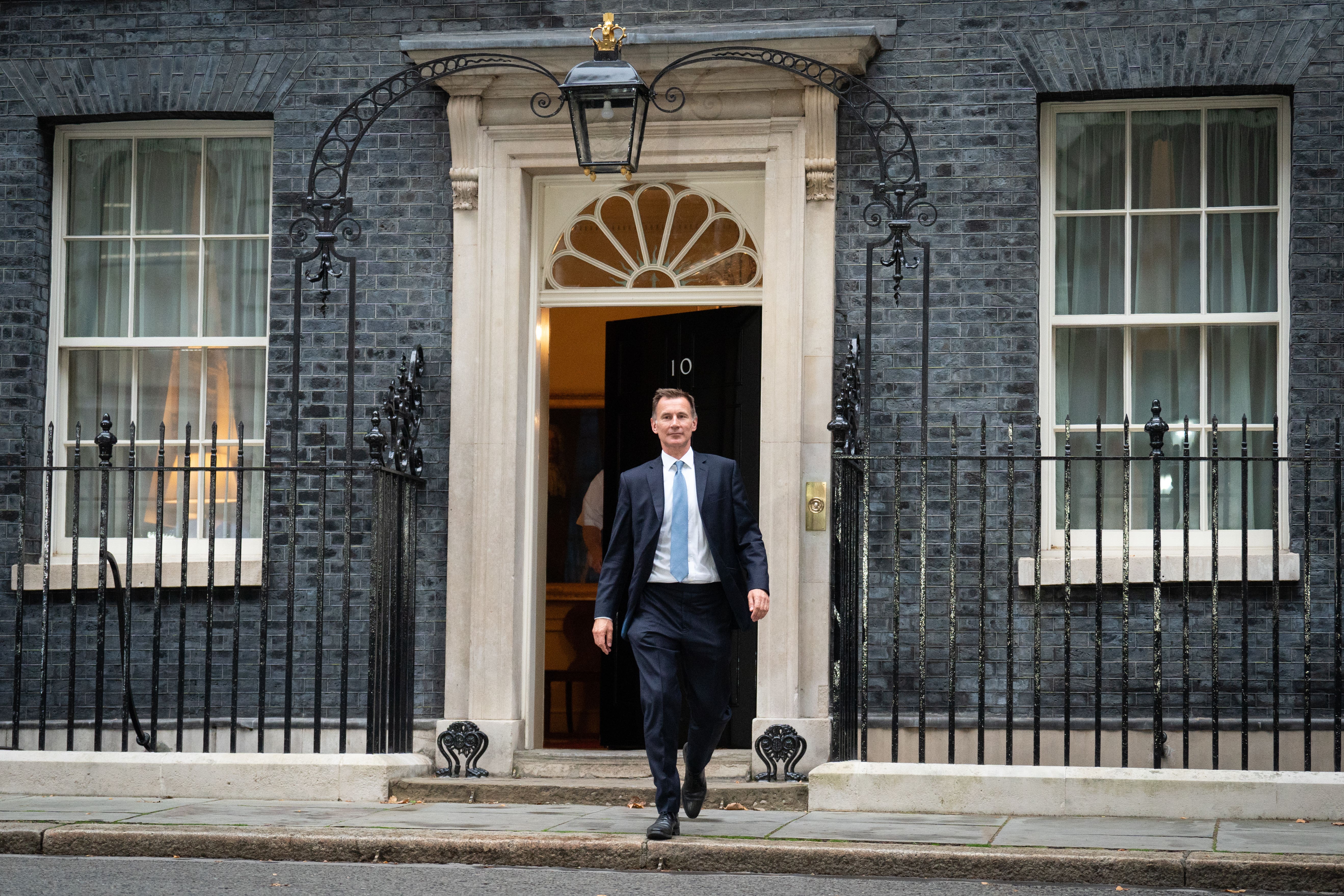Markets soothed as new Chancellor sharply reverses mini-budget policies
Yields on 30-year government bonds, or gilts, eased back by around 10% as Jeremy Hunt set out plans to shave off billions of Government debt.

The pound and UK government bonds rallied further on Monday afternoon as the financial markets were placated by new Chancellor Jeremy Hunt’s emergency statement.
Yields on 30-year government bonds, or gilts, eased back by around 10% as Mr Hunt set out plans to shave off billions of Government debt.
The interest on long-dated bonds hit a low of around 4.32% shortly after the first announcement and stayed around the 4.3% mark for the rest of the afternoon.
The gilt market has been closely monitored since yields spiked to more than 5% after Kwasi Kwarteng unveiled his tax-cutting mini-budget back in late September, and the Bank of England was forced to intervene with an emergency bond-buying programme.
Mr Hunt’s announcements on Monday morning – including ditching the 1p income tax reduction and reviewing the Government’s energy support package – initially calmed investors who had been spooked by debt-funded tax cuts.
But it still has not undone the recent market turmoil, with yields on 30-year gilts still significantly higher than the 3.5% level seen before September 23.
The statement provided a welcome boost for the battered pound which jumped by more than 2% during the afternoon to around 1.1425 US dollars.
Sterling had plunged to a record low of around 1.04 US dollars after the mini-budget as traders rushed to sell off the weakening pound.
Investors in the London Stock Exchange also reacted positively with the FTSE 100 rallying by around 1.5% to hit a high of 6,960 not long after Mr Hunt’s announcement.
Stock markets closed shortly after Mr Hunt told the House of Commons that he was forming a new economic advisory council to provide more independent expert advice to the Government.
The Chancellor’s surprise economic announcement has brought forward policies due to be announced in the medium-term fiscal plan on October 31, which will be guided by the Office for Budget Responsibility’s official economic forecast.
Some economists have suggested that the mini-budget U-turns would encourage the Monetary Policy Committee (MPC) to opt for a less steep interest rate hike at its next meeting in November, which could soothe the nerves of mortgage holders.
Average mortgage rates shot up in the days following the mini-budget as lenders pulled products for new buyers and repriced their rates upwards.
Jeremy Hunt’s focus on reassuring the markets and reinstating confidence appears to have worked so far, with gilt yields trading lower and sterling pushing higher
Victoria Scholar, head of investment at Interactive Investor, said: “The markets are responding positively to the new Chancellor’s plans to reverse almost all of the tax cuts announced by his predecessor Kwasi Kwarteng in the mini-budget on September 23.
“Jeremy Hunt’s focus on reassuring the markets and reinstating confidence appears to have worked so far, with gilt yields trading lower and sterling pushing higher.
“The FTSE 100 is staging gains with utilities and housebuilders, the most budget-sensitive sectors outperforming as Trussonomics is unwound with the reversal of the biggest tax cuts in 50 years.
“The retreat in gilt yields and sterling’s appreciation should help to settle the mortgage market and offset some of the UK’s imported inflationary pressures, possibly requiring less aggressive interest rate increases from the Bank of England at its next monetary policy committee meeting at the start of November.”
Bookmark popover
Removed from bookmarks